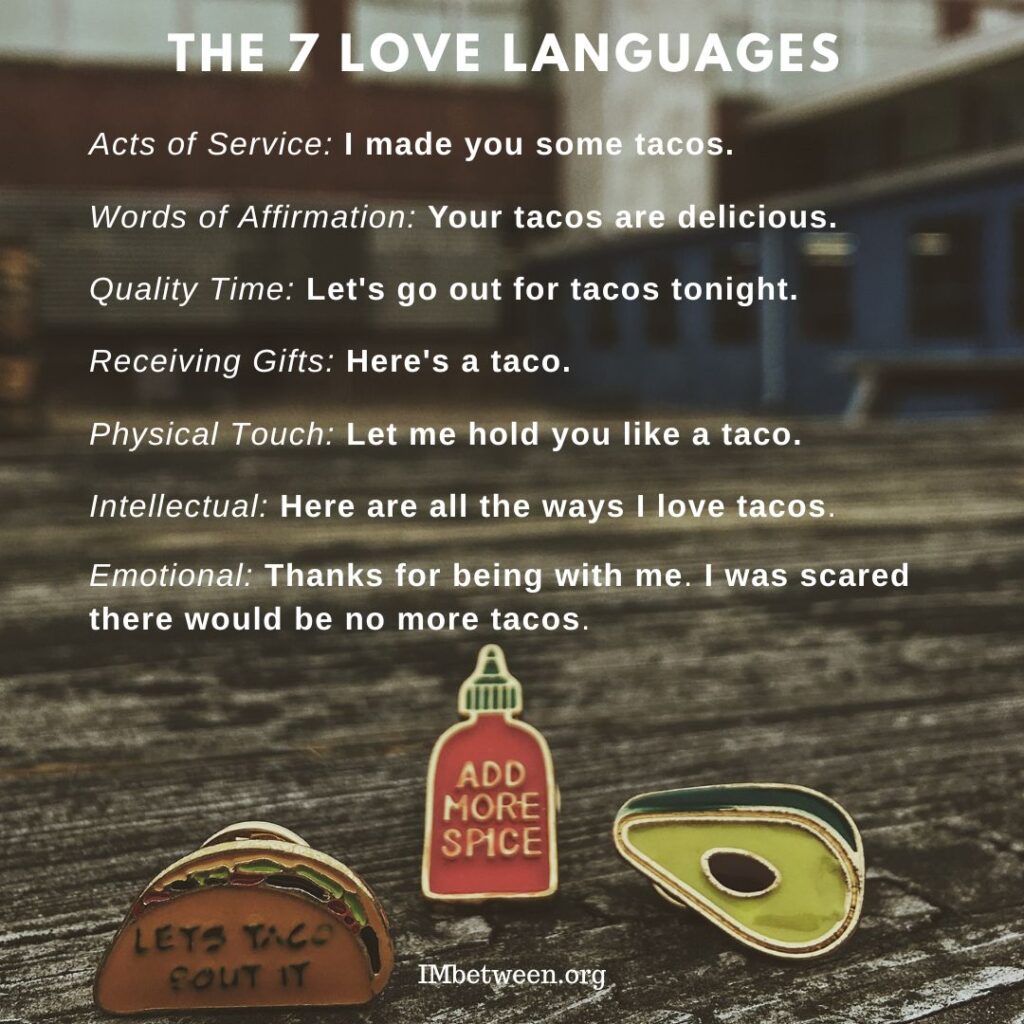Perhaps you are familiar with Dr. Gary Chapman’s The 5 Love Languages. It has been revolutionary to individuals, couples, and families worldwide. Truity, a company that offers a variety of online personality quizzes, wanted to build on Dr. Chapman’s work. They surveyed over 500 000 people about what makes them feel loved and discovered that there are seven distinct ways of showing and receiving love. In episode 161, Daniel and Christina break down the seven new love languages and give you four simple steps to get your love language heard.

In This Episode, You’ll Hear About:
- The 7 new love languages: Activity, appreciation, emotional, financial, intellectual, physical, and practical.
- Four steps to get your love language heard:
- Discover your love language.
- Discuss your results with your spouse.
- Get your language heard with a gentle start-up.
- Give your spouse the “high 5” emoji.
- What it means to “keep your partner’s love tank full” and why it is so important.
- Why you should learn to express your needs and respond to your spouse’s needs.
Resources Mentioned IN This Episode:
- Truity’s 7 Love Styles Test
- The 5 Love Languages quiz
- The 5 Love Languages: The Secret to Love That Lasts by Dr. Gary Chapman
- The 5 Love Languages of Teenagers: The Secret to Loving Teenagers Effectively by Dr. Gary Champan
- The 5 Love Languages of Children: The Secret to Loving Children Effectively by Dr. Gary Chapman
- Building Love Together in Blended Families: The 5 Love Languages and Becoming Stepfamily Smart by Dr. Gary Chapman and Ron L. Deal
- Listen to our previous episodes about Discovering Your Child’s Love Language Part 1 and Part 2
- Listen to our interview with Ron L. Deal about The 5 Love Languages of Blended Families
- Learn to express your needs positively by listening to How To Support Your Hurting Spouse When You’re Hurting Too
Quotes and Tweets:
- If you can learn to speak your spouse’s love language regularly, you can keep their “love tank full.” This effort can lead to a longer and more positive relationship. @imbetweenshow
- Expressing appreciation creates a positive feedback loop: “It feels good to know I made my spouse feel good, so I will keep doing that.” The positive reinforcement gives your spouse the confidence to become more fluent in your love language. And guess what? If you’re feeling loved, you will want to show your spouse love too. @imbetweenshow
Breakdown Of The 7 Love Languages:
Activity
People who focus on the Activity love language feel unique and valued when their partner takes an interest in their hobbies and activities and makes an effort to enjoy hobbies and interests together.
Appreciation
People who focus on the Appreciation love language feel loved when their partner gives them compliments, praise, and thanks. They appreciate hearing explicitly what their partner likes and admires about them.
Emotional
Those who focus on the Emotional love language feel loved when their partner can connect with them and support them through complex and scary emotions. Being present for the highs and lows is very important to those with the Emotional love language.
Financial
People with the Financial love language feel loved when their partner is generous with resources and sees value in spending money to bring their partner pleasure and joy. This love language may be expressed through gifts or just making space in the family budget for your partner’s enjoyment.
Intellectual
People with the Intellectual love language like to connect through the mind. They feel loved when their partner values their intelligence, respect their opinion, and participates in thoughtful discussion of important issues.
Physical
People with the Physical love language feel loved when they receive physical affection—hugs, holding hands, and snuggles. They want their partner to show their attraction and initiate loving touch.
Practical
People with the Practical love language feel loved when their partners chip in with everyday duties and responsibilities. They feel cared for when their loved ones do chores and offer help.
Images To Save and Share:

Questions For Personal Reflection:
- How did your parents react when you expressed your needs?
- How do you react when your spouse does not meet your needs?
- Are you comfortable expressing what you need to your spouse? Why or why not?
- On a scale from 1 (empty) to 10 (overflowing), how full is your “love tank?”
Discussion Prompts For You As A Couple:
- Did any of the results from the love languages quiz surprise you?
- Have there been ways recently where I have shown you this love language?
- What does it feel like when I speak your love language?
- Is there anything I can do to “fill up your love tank?”
